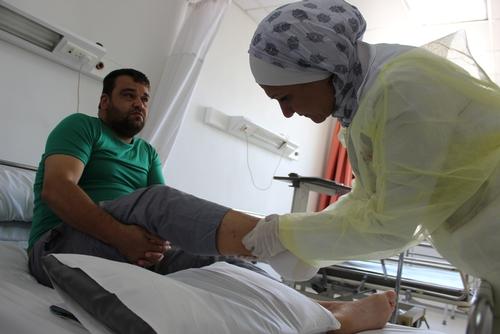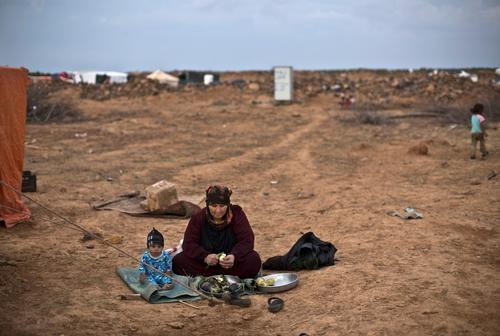MSF urgently calls for medical evacuations for eighteen patients whose lives are in the balance
Medics supported by Médecins Sans Frontières (MSF) in Madaya besieged town confirm five deaths from starvation since the first UN/ICRC/SARC
23 patients died of starvation in Madaya in December, five more on Sunday 10 January, and another two on Monday 11 January, as the first convoy was en-route. The latest five deaths make a total of 35 deaths from starvation confirmed by the MSF-supported medics in Madaya.

“This is shocking; patients are still dying despite the arrival of two big international humanitarian convoys,” says Brice de le Vingne, Director of Operations for MSF. “Some of the current patients may not survive another day. Medical evacuations for the most critically sick and malnourished need to happen immediately, and it is hard to understand why patients clinging on to life have not already been evacuated. Nothing should be allowed hold this up and everything possible should be done by the warring parties and the agencies involved in the convoys to expedite these evacuations as a life-saving humanitarian act.”
The MSF-supported medics have identified eighteen critical patients that need to be medically evacuated or risk imminent death. A larger number will either need medical evacuation or expert malnutrition-experienced medical care in the following days.
Providing medical care to severe malnourished patients is technically complex, and just giving therapeutic food without experience of treating malnutrition could send a patient into oedema. The most critical patients need to be treated in a hospital environment with skilled medical staff and appropriate medical infrastructure. MSF also advises that pregnant and lactating women should be evacuated from this context.
“We raise the strongest possible alarm that some of the patients that need urgent hospitalization are about to die if they are not medically evacuated immediately,” says de le Vingne. “This is the current emergency, while other essential medical follow-up activities need to be pursued in the coming days.”





